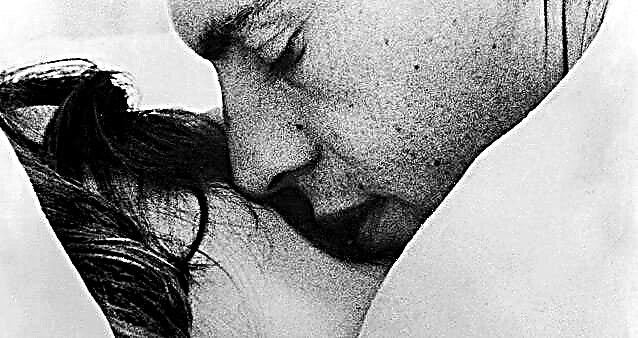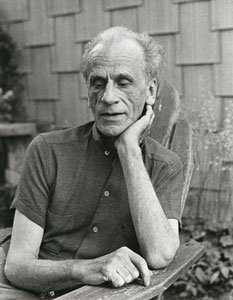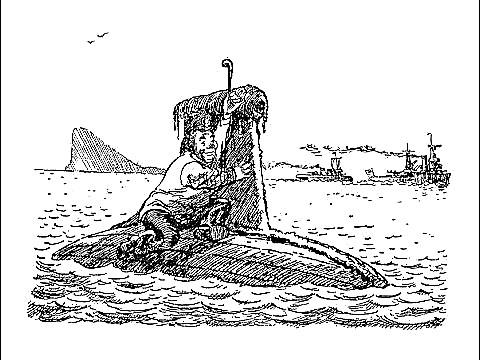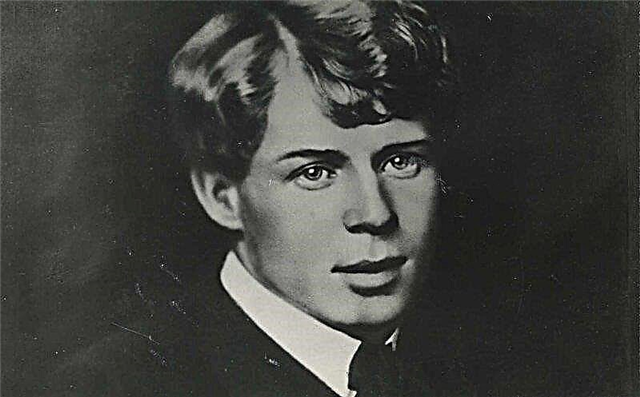Here is a bank of arguments for writing on the exam in the Russian language. It is dedicated to military topics. Each problem corresponds to literary examples that are necessary for writing the work of the highest quality. The heading corresponds to the wording of the problem, under the heading are the arguments (3-5 pieces, depending on complexity). You can also download these table arguments (link at the end of the article). We hope that they will help you in preparing for the exam.
Cowardice in battle and its consequences
- In the story of Vasil Bykov "Sotnikov" Rybak betrayed his homeland, afraid of torture. When two comrades, in search of provisions for a partisan detachment, ran into invaders, they were forced to retreat and hide in the village. However, the enemies found them in the house of a local resident and decided to interrogate them with violence. Sotnikov passed the test with honor, but his friend sided with the punishers. He decided to become a policeman, although he intended to escape to his own at the first opportunity. However, this action forever crossed out the future of the Fisherman. Having knocked out the props from under the feet of a comrade, he became a traitor and a vile killer who is not worthy of forgiveness.
- In Alexander Pushkin’s novel “The Captain’s Daughter,” cowardice turned into a personal tragedy for the hero: he lost everything. Trying to win the favor of Marya Mironova, he decided to cheat and dissemble, rather than behave courageously. And so, at a crucial moment, when the Belgorod fortress was captured by the rebels, and Masha’s parents were brutally murdered, Alexey did not stand up behind them, did not protect the girl, but changed into a simple dress and joined the invaders, saving his life. His cowardice finally pushed the heroine away, and, even being in his captivity, she proudly and adamantly resisted his affection. In her opinion, it is better to die than to be along with a coward and a traitor.
- In the work of Valentin Rasputin, “Live and Remember,” Andrei deserts and runs to his home in his native village. Unlike him, his wife was a courageous and loyal woman, so she, at the risk of herself, covers up an escaped husband. He lives in a nearby forest, and she wears everything he needs in secret from his neighbors. But Nastya’s absences became public. Behind her, the villagers floated in pursuit of the boat. In order to save Andrei, Nastena drowned herself without giving out a deserter. But the coward in her face lost everything: love, salvation, family. His fear of war destroyed the only man who loved him.
- In Tolstoy’s short story “Prisoner of the Caucasus” two heroes are contrasted: Zhilin and Kostygin. While one, being captured by the Highlanders, boldly fights for his freedom, the other humbly waits for his relatives to pay the ransom. Fear fills his eyes, and he does not understand that this money will support the rebels and their struggle against his compatriots. In the first place for him is only his own fate, and he does not give a damn about the interests of his homeland. Obviously, cowardice manifests itself in war and exposes such traits of nature as egoism, weak character and insignificance.
Overcoming fear in war
- In Vsevolod Garshin’s short story “Coward,” the hero is afraid to be destroyed in the name of someone’s political ambitions. He is worried that with all his plans and dreams he will turn out to be just a surname and initials in a dry newspaper report. He does not understand why he needs to fight and risk himself, why all these victims. His friends, of course, say that they are driven by cowardice. They gave him food for thought, and he nevertheless decided to sign up as a volunteer to the front. The hero realized that he was sacrificing himself for a great cause - the salvation of his people and his homeland. He died, but was happy, because he made a really significant step, and his life acquired meaningfulness.
- In the story of Mikhail Sholokhov, “The Fate of a Man,” Andrei Sokolov overcomes the fear of death and does not agree to drink for the victory of the Third Reich, as required by the commandant. For incitement to rebellion and disrespect for warders, he is in danger of punishment. The only way to avoid death is to take Muller's toast, betray the homeland in words. Of course, the man wanted to live, was afraid of torture, but honor and dignity were dearer to him. Mentally and spiritually, he fought with the invaders, even standing in front of the camp leader. And he defeated him by willpower, refusing to carry out his order. The enemy recognized the superiority of the Russian spirit and awarded the soldier, who even in captivity overcomes fear and defends the interests of his country.
- In Leo Tolstoy’s novel “War and Peace,” Pierre Bezukhov is afraid to take part in hostilities: he is awkward, timid, weak, not fit for military service. However, seeing the scope and horror of the Patriotic War of 1812, he decided to go alone and kill Napoleon. He did not have to go to besieged Moscow and risk himself, with his money and influence he could sit out in a secluded corner of Russia. But he goes to help the people somehow. Pierre, of course, does not kill the emperor of the French, but rescues the girl from the fire, and this is already a lot. He defeated his fear and did not hide from war.
The problem of imaginary and real heroism
- In Leo Tolstoy’s novel War and Peace, Fedor Dolokhov shows excessive cruelty in the course of hostilities. He enjoys violence, while always demanding rewards and praise for his alleged heroism, in which there is more vanity than courage. For example, he grabbed an already surrendered officer by the collar and long insisted that it was he who had captured him. While soldiers like Timokhin modestly and simply did their duty, Fedor boasted and boasted of his exaggerated achievements. He did this not for the sake of saving his homeland, but for the sake of self-affirmation. This is fake, fake heroism.
- In Leo Tolstoy’s novel War and Peace, Andrei Bolkonsky goes to war for the sake of a career, and not for the sake of a bright future for his country. He cares only about the fame that went to, for example, Napoleon. In pursuit of her, he throws his pregnant wife alone. Once in the field of battle, the prince rushes into a bloody battle, urging many people to sacrifice themselves with him. However, his throw did not change the outcome of the battle, but only provided new losses. Having realized this, Andrey realizes the insignificance of his motives. From that moment, he no longer pursues recognition, he is only concerned about the fate of his native country, and only for it he is ready to return to the front and sacrifice himself.
- In the story of Vasil Bykov “Sotnikov” the Fisherman was known as a strong and courageous fighter. He was strong in health and powerful in appearance. He had no equal in fights. But the real test showed that all his actions - only empty bragging. Fearing torture, the Fisherman accepts the offer of the enemy and becomes a police officer. In his pretense of courage there was not a drop of real courage, so he could not withstand the moral pressure of the fear of pain and death. Unfortunately, imaginary virtues are recognized only in trouble, and his comrades did not know whom they trusted.
- In Boris Vasiliev’s short story “Not Listed,” the hero alone defends the Brest Fortress, all of whose other defenders fell dead. Nikolai Pluzhnikov himself is barely standing on his feet, but he still fulfills his duty until the end of his life. Someone, of course, will say that on his part this is reckless. There is safety in numbers. But I still think that in his position this is the only right choice, because he does not get out and join the combat-ready units. So isn’t it better to give the last fight than to spend a bullet on yourself? In my opinion, Pluzhnikov’s act is a feat of a real man who looks the truth in the eye.
- In Victor Astafyev’s novel “Damned and Killed,” dozens of fates of ordinary children are described, whom the war drove into the most difficult conditions: hunger, mortal risk, illness, and constant fatigue. They are not soldiers, but ordinary inhabitants of villages and villages, prisons and camps: illiterate, cowardly, fisted and not even very honest. All of them are just cannon fodder in battle; many are no use. What drives them? The desire to curry favor and get a respite or work in the city? Hopelessness? Perhaps their stay at the front is recklessness? You can answer in different ways, but I still think that their sacrifices and a modest contribution to the victory are not in vain, but necessary. I am sure that their behavior is controlled not always by a conscious, but true force - love of the fatherland. The author shows how and why it appears in each of the characters. Therefore, I consider their courage genuine.
Mercy and indifference in the atmosphere of hostilities
- In Tolstoy's novel War and Peace, Berg, the husband of Vera Rostova, shows blasphemous indifference to compatriots. During the evacuation from besieged Moscow, he takes advantage of the grief and confusion of people, buying their rare and valuable things cheaper. He does not care about the fate of the fatherland, he only looks in his pocket. The troubles of the surrounding refugees, frightened and crushed by the war, do not touch him. At the same time, the peasants burn all their possessions, so long as they do not go to the enemy. They burn houses, kill livestock, and destroy entire villages. For the sake of victory, they risk everything, go into the woods and live as one family. In contrast, Tolstoy shows indifference and compassion, contrasting the dishonest elite and the poor, who turned out to be richer spiritually.
- The poem by Alexander Twardowski "Vasily Terkin" describes the unity of the people in the face of a mortal threat. In the chapter “Two Soldiers,” the old men greet Vasily and even feed him, having spent precious food on a stranger. In exchange for hospitality, the hero fixes an elderly couple watches and other utensils, and also entertains them with encouraging conversations. Although the old woman is reluctant to get a treat, Terkin does not reproach her, because she understands how hard it is for them to live in a village where there is even no one to help chop wood - everything is at the front. However, even different people find a common language and sympathize with each other when clouds thickened over their homeland. This unity was the call of the author.
- In the story of Vasil Bykov "Sotnikov" Demchikh hides partisans, despite the mortal risk. She hesitates, being scared and driven by a village woman, and not the cover heroine. Before us is a living person, not without weaknesses. She is not happy with uninvited guests, policemen are circling the village, and if they find something, no one will survive. Nevertheless, compassion prevails in a woman: she harbors resistance fighters. And her feat did not go unnoticed: during interrogation with torture and torture, Sotnikov did not betray his patroness, carefully trying to fence her off, to blame herself. Thus, mercy in war begets mercy, and cruelty only cruelty.
- Tolstoy’s novel War and Peace describes some episodes that indicate indifference and responsiveness to prisoners. Russian people saved officer Rambal and his batman from death. The frozen French themselves came to the enemy camp, they were dying of frostbite and hunger. Our compatriots showed mercy: they fed them porridge, poured them warming vodka, and the officers were even carried on their hands to the tent. But the invaders were less compassionate: the familiar Frenchman did not intercede for Bezukhov, seeing him in a crowd of prisoners. The count himself barely survived, receiving the poorest ration in prison and walking in the cold on a leash. Under such conditions, the weakened Platon Karataev died, to whom none of the enemies thought to give porridge with vodka. The example of Russian soldiers is instructive: it demonstrates the truth that one must remain human in war.
- An interesting example was described by Alexander Pushkin in the novel "The Captain's Daughter." Pugachev, the ataman of the rebels, showed mercy and had mercy on Peter, respecting his kindness and generosity. The young man once gave him a short fur coat, not stingy to the aid of a stranger from the common people. Emelyan continued to do good to him, and after the "reckoning", because in the war he sought justice. But the Empress Catherine showed indifference to the fate of the officer devoted to her and surrendered only to Marya's persuasion. In the war, she showed barbaric cruelty by arranging the execution of rebels in the square. It is not surprising that the people went against its oppressive power. Only compassion can help a person stop the destructive power of hatred and enmity.
The moral choice in war
- In the story of Gogol "Taras Bulba" the youngest son of the protagonist is at a crossroads between love and homeland. He chooses the first, forever renouncing his family and homeland. The comrades did not accept his choice. Father was especially grieving, because the only chance to restore the honor of the clan was to kill the traitor. The battle fraternity took revenge for the death of their loved ones and for the oppression of faith, Andrius trampled the holy revenge, and Taras also made his difficult but necessary choice for upholding this idea. He kills his son, proving to his fellow soldiers that the most important thing for him as an ataman is the salvation of his homeland, and not petty interests. So he forever holds a Cossack partnership, which will fight with the "Poles" and after his death.
- In Leo Tolstoy’s short story “Prisoner of the Caucasus,” the heroine also made a desperate decision. Dina liked the Russian man who was forcibly held by her relatives, friends, her people. She faced a choice between kinship and love, bonds of duty and the dictates of feeling. She hesitated, thought, decided, but could not help, as she understood that Zhilin was not worthy of such a fate. He is kind, strong and honest, but he does not have money for a ransom, and that is not his fault. Despite the fact that the Tatars and Russians fought that some captured others, the girl made a moral choice in favor of justice, not cruelty. This probably reflects the superiority of children over adults: even in the struggle they show less anger.
- Remarque’s novel “On the Western Front Without Change” depicts the image of a military commissar who called on high school students, very young boys, for the First World War. At the same time, we remember from history that Germany did not defend, but attacked, that is, the guys went to death for the sake of other people's ambitions. However, their hearts were inflamed by the words of this dishonest man. So, the main characters went to the front. And only there they realized that their agitator was a coward, sitting back in the rear. He sends the young men to death, and he himself sits at home. His choice is immoral. He exposes a weak-willed hypocrite in this seemingly courageous officer.
- In Twardowski’s poem “Vasily Terkin”, the main character swims across the icy river to bring important reports to the command. He rushes into the water under fire, risking freezing to death or drowning, grabbing an enemy bullet. But Vasily makes a choice in favor of debt - an idea that is larger than himself. He contributes to the victory, thinking not about himself, but about the outcome of the operation.
Mutual assistance and selfishness at the forefront
- In Tolstoy’s novel “War and Peace,” Natasha Rostova is ready to give up the carts to the wounded, just to help them avoid the French persecution and leave the besieged city. She is ready to lose valuable things, despite the fact that her family is on the verge of ruin. The whole thing is in her upbringing: the Rostovs were always ready to help and help a person out of trouble. Relations are more dear to them than money. But Berg, the husband of Vera Rostova, during the evacuation, bargained things frightened off for frightened people in order to amass capital. Alas, in war, not everyone can stand the test of morality. The true face of a person, an egoist or a benefactor, will always prove himself.
- In Lev Tolstoy's Sevastopol Tales, the "circle of aristocrats" demonstrates unpleasant traits of the character of the nobility who found themselves in the war because of vanity. For example, Galtsin is a coward, everyone knows about it, but no one speaks, because he is a noble nobleman.He lazily offers his help on a sortie, but everyone dissuades him hypocritically, knowing that he will not go anywhere, and there is little use from him. This person is a cowardly egoist who thinks only of himself, not paying attention to the needs of the fatherland and the tragedy of his own people. At the same time, Tolstoy describes the silent feat of doctors who work overtime and restrain their nerves from seeing horror. They will not be awarded or promoted, they don’t care, because they have one goal - to save as many soldiers as possible.
- In Mikhail Bulgakov’s novel The White Guard, Sergey Talberg leaves his wife and escapes from a country torn by civil war. He selfishly and cynically leaves in Russia everything that was dear to him, everything that he swore to be faithful to the end. Helen was taken under protection by brothers who, unlike a relative, until the last served the one who was sworn in. They protected and comforted the abandoned sister, because all the conscientious people united under the burden of threat. For example, the commander of Nai-Tours performs an outstanding feat, saving the junkers from imminent death in vain battle. He himself is dying, but he helps young men innocent and deceived by the hetman save their lives and leave the besieged city.
The negative impact of war on society
- In Mikhail Sholokhov’s novel “Quiet Don”, the entire Cossack people become a victim of war. The old way of life is collapsing due to fratricidal strife. The breadwinners die, the children go out of obedience, the widows go crazy with grief and the unbearable yoke of labor. The fate of absolutely all the heroes is tragic: Aksinya and Peter die, become infected with syphilis and commit suicide Daria, are disappointed in the life of Gregory, the lonely and forgotten Natalia dies, Michael becomes stale and impudent, Dunyasha runs away and lives unhappily. All generations are in discord, brother goes to brother, the earth is orphaned, because in the heat of battle they forgot about it. As a result, the civil war led only to devastation and grief, and not to a brighter future, which was promised by all warring parties.
- In the poem by Mikhail Lermontov “Mtsyri”, the hero became another victim of the war. He was picked up by a Russian military man, forcibly taken away from his native home and, probably, he would have further disposed of his fate if the boy had not become ill. Then his almost lifeless body was thrown into the care of the monks in a passing monastery. Mtsyri grew up, he was destined for the novice, and then the clergyman, but he never reconciled with the tyranny of the kidnappers. The young man wanted to return to his homeland, to reunite with his family, to quench the thirst for love and life. However, he was deprived of all this, because he was only a prisoner, and even after the escape he was again in his prison. This story is an echo of war, as the struggle of countries cripples the fate of ordinary people.
- There is an insert in Nikolai Gogol’s novel Dead Souls, which is a separate story. This is a story about captain Kopeikin. It tells about the fate of the crippled, who became a victim of the war. In the battle for his homeland, he became disabled. Hoping to get a pension or some kind of help, he arrived in the capital and began to go to the officials. However, they became hardened at their convenient workplaces and only drove the poor man, not at all facilitating his life filled with suffering. Alas, the constant wars in the Russian Empire gave rise to many such cases, so no one really reacted to them. You can’t even blame anyone for sure. Society became indifferent and cruel, so people defended themselves from constant anxieties and losses.
- In Varlam Shalamov’s short story “The Last Battle of Major Pugachev,” the main characters, who honestly defended their homeland during the war, were sent to a labor camp in their homeland because they had once been captured by the Germans. No one felt sorry for these worthy people, no one showed condescension, and yet they are not guilty of being captured. And it is not only a matter of cruel and unjust politicians, it is a matter of a people that has become stiff from constant grief, from inescapable deprivation. Society itself indifferently listened to the suffering of innocent soldiers. And they, too, were forced to kill the guards, run and shoot, because the bloody massacre also made them so: merciless, angry and desperate.
Children and women at the front
- In Boris Vasiliev’s short story “Dawns Here Are Quiet,” the main characters are women. Of course, they were more afraid than men to go to war, each of them left close and dear people. Rita even left her parents a son. However, the girls fight selflessly and do not retreat, although they confront sixteen soldiers. Each of them fights heroically, each overcomes its fear of death in the name of saving the homeland. Their feat is perceived especially hard, because fragile women have no place on the battlefield. However, they destroyed this stereotype and defeated the fear that fetters more suitable fighters.
- In Boris Vasiliev’s novel “Not Listed”, the last defenders of the Brest Fortress try to save women and children from starvation. They lack water and supplies. With heartache, the soldiers escorted them to German captivity, there is no other way. However, the enemies did not spare even the expectant mothers. Pluzhnikov’s pregnant wife, Mirra, is beaten with boots and pierced with a bayonet. Her mutilated corpse is bombarded with bricks. The tragedy of war lies in the fact that it deprives people of humanity, releasing all their hidden vices.
- In the work of Arkady Gaidar "Timur and his team," the heroes are not soldiers, but young pioneers. As long as a fierce battle lasts at the fronts, they, as they can, help the fatherland survive in trouble. The guys do the hard work for widows, orphans and single mothers who even have no one to chop wood. They secretly carry out all these tasks, without waiting for praise and honors. The main thing for them is to make their modest but important contribution to the victory. Their fates are also crumpled by war. Zhenya, for example, grows up in the care of her older sister, but they see their father every few months. However, this does not prevent children from fulfilling their small civic duty.
The problem of nobility and baseness in battle
- In Boris Vasiliev’s novel “Not Listed”, Mirra is forced to surrender when she discovers that she is pregnant from Nikolai. In their shelter there is no water and food, young people miraculously survive, because they are being hunted. But here the lame Jewish girl gets out of the underground to save the life of her child. Pluzhnikov is vigilantly watching her. However, she did not manage to mingle with the crowd. So that her husband does not give himself away, does not go to save her, she moves away, and Nikolai does not see how furious invaders beat his wife, how they injure her with a bayonet, how they flood her body with bricks. There is so much nobility in this act of her, so much love and self-sacrifice, that it is difficult to perceive without internal shudder. The fragile woman turned out to be stronger, courageous and nobler than the representatives of the “chosen nation” and the stronger sex.
- In Nikolai Gogol’s novel “Taras Bulba”, Ostap shows genuine nobility in war conditions, when even under torture he does not utter a single cry. He did not give the enemy spectacles and glee, defeating him spiritually. In his dying word, he only turned to his father, whom he did not expect to hear. But I heard. And I realized that their work was alive, and therefore he was alive. In this self-denial in the name of the idea revealed his rich and strong nature. But the idle crowd surrounding him is a symbol of human baseness, because people gathered to savor the pain of another person. This is terrible, and Gogol emphasizes how terrible the face of this mottled public is, how grumbling it is. He contrasted her brutality with the virtues of Ostap, and we understand on whose side the author is in this conflict.
- Nobleness and baseness of a person are truly manifested only in emergency situations. For example, in the story of Vasil Bykov “Sotnikov”, two heroes behaved completely differently, although they lived side by side in the same squad. The fisherman betrayed the country, friends, his duty because of the fear of pain and death. He became a policeman and even helped his new associates hang his former partner. Sotnikov did not think about himself, although he suffered torment from torture. He tried to save Demchikha, his former friend, to ward off trouble from the squad. Therefore, he blamed everything on himself. This noble man did not allow himself to be broken and gave his life for dignity with dignity.
The problem of responsibility and negligence of fighters
- In the "Sevastopol Stories" by Leo Tolstoy, the irresponsibility of many fighters is described. They are only drawn in front of each other, and go to business only for the sake of promotion. They do not think about the outcome of the battle at all, they are only interested in rewards. For example, Mikhailov only cares to make friends with a circle of aristocrats and get some benefits from the service. Having been injured, he even refuses to bandage it so that everyone is struck by the sight of blood, because a serious injury is rewarded. Therefore, it is not surprising that in the final, Tolstoy describes precisely the defeat. With such an attitude to one's duty to the motherland it is impossible to win.
- In “The Tale of Igor's Campaign,” an unknown author narrates about the instructive campaign of Prince Igor against the Polovtsians. In an effort to gain easy fame, he leads a squad against the nomads, neglecting the concluded truce. The Russian troops defeat the enemies, but at night the nomads take the sleeping and drunken warriors by surprise, they kill many, and the rest are taken prisoner. The young prince repented of his folly, but late: the squad was killed, his patrimony without a master, his wife in grief, like all the people. The antithesis of the frivolous ruler is the wise Svyatoslav, who says that the Russian lands need to be united, and you should not meddle with enemies just like that. He is responsible for his mission and condemns the vanity of Igor. His "Golden Word" later became the basis of the political system of Russia.
- In Leo Tolstoy’s novel War and Peace, two types of generals are contrasted with each other: Kutuzov and Alexander the First. One takes care of his people, puts the welfare of the army above victory, and the other thinks only of the quick success of the case, and he does not give a damn about the victims of the soldiers. Due to illiterate and short-sighted decisions of the Russian emperor, the army suffered losses, the soldiers were dejected and confused. But Kutuzov’s tactics brought Russia complete deliverance from the enemy with minimal losses. Therefore, it is very important to be a responsible and humane leader on the battlefield.


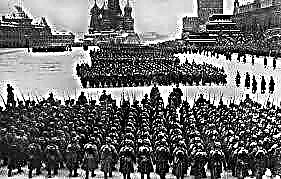
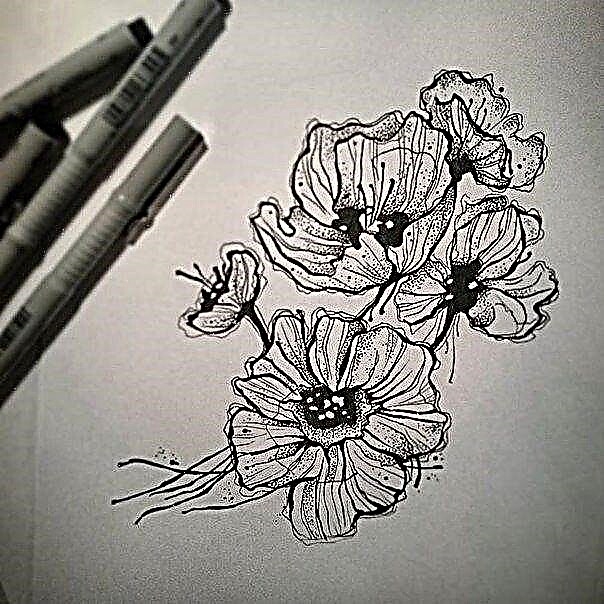


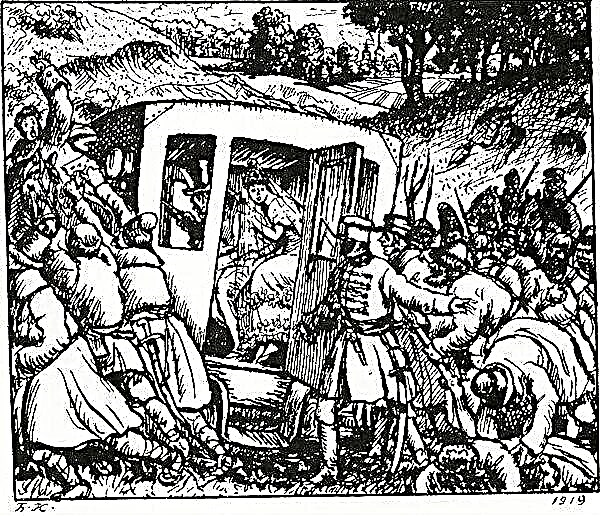
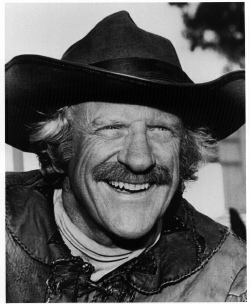
 Five vices of the team
Five vices of the team